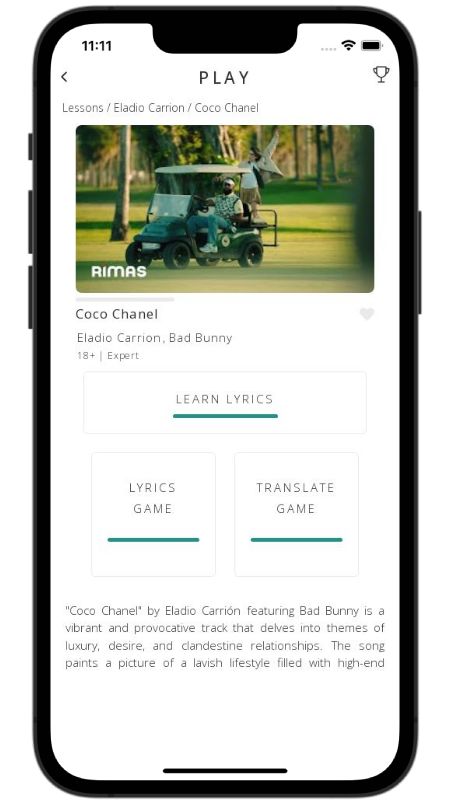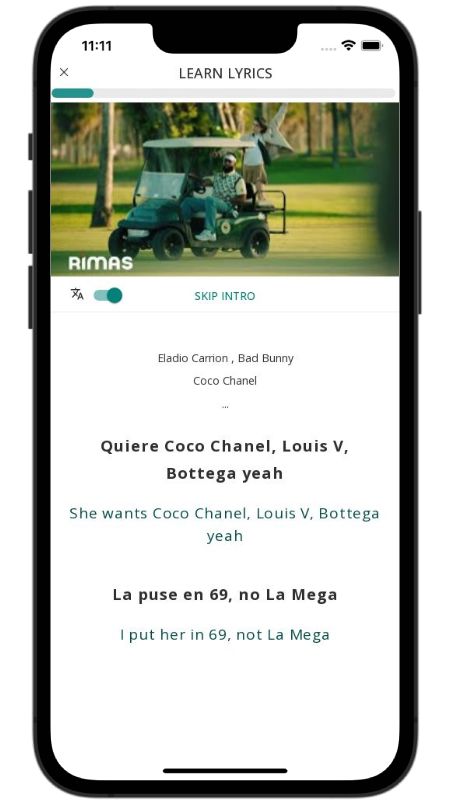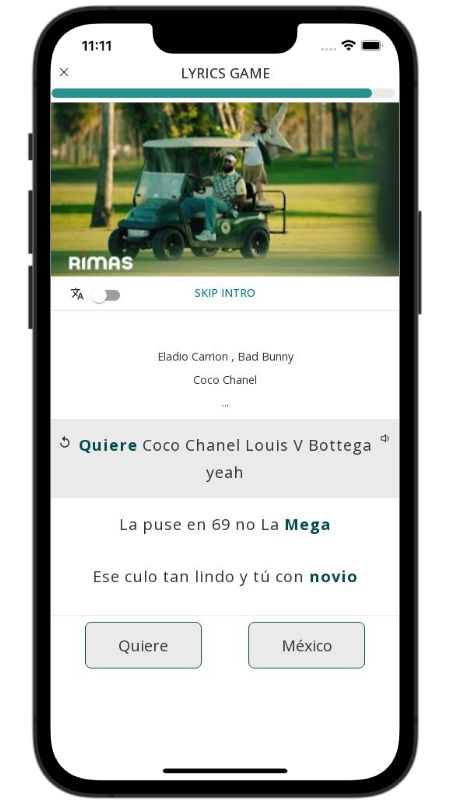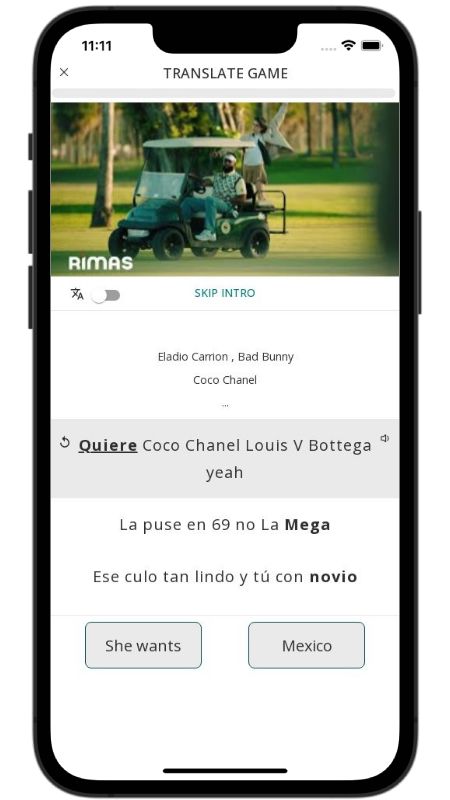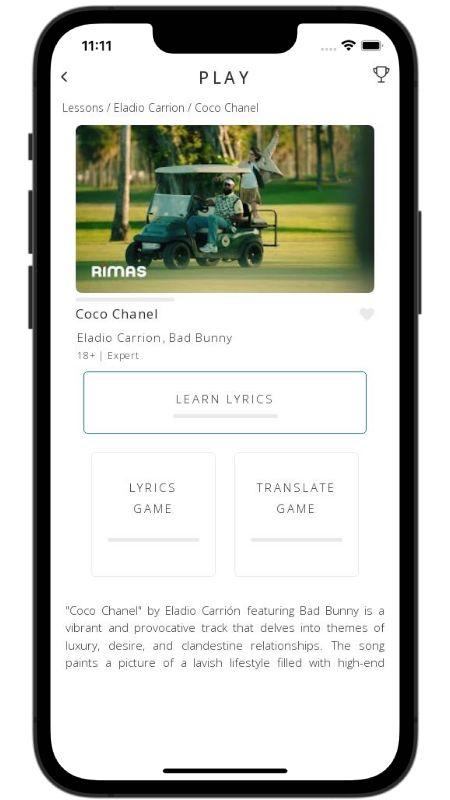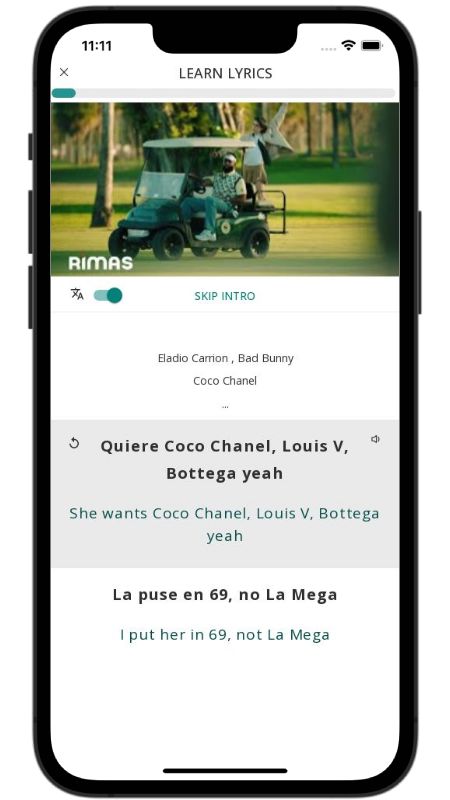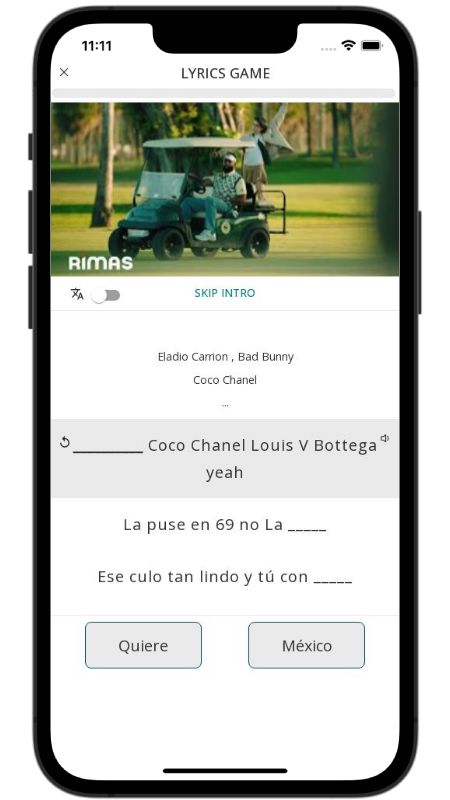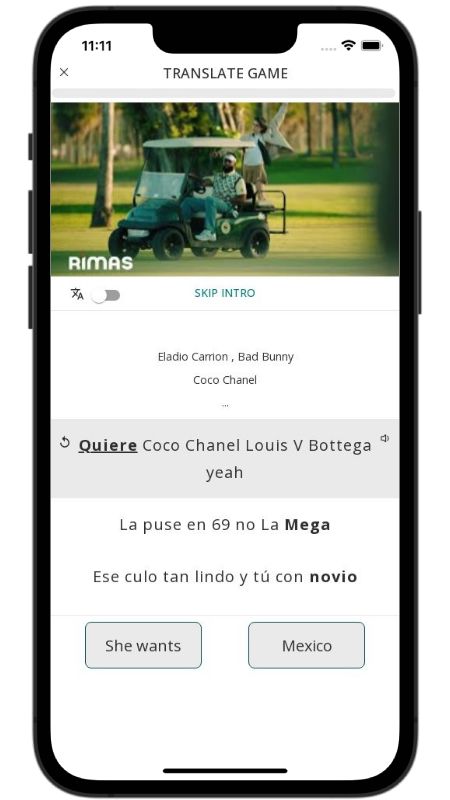Coco Chanel Lyrics in English Eladio Carrion , Bad Bunny
Below, I translated the lyrics of the song Coco Chanel by Eladio Carrion from Spanish to English.
These lyrics have verified word for word translations. Click any lyric word to see the translation and hear the pronunciation!
Chorus 1
She wants Coco Chanel, Louis V, Bottega
I put her in 69, not La Mega
That a*s so pretty and you got a boyfriend
Baby, that doesn't match, baby, that doesn't match
We f*cked with my jewelry on, she went blind
Yeah, they ask about me and she denies it
She never goes out, but if it's for me she shows up
Verse 1
I already went to sleep, but if it's to f*ck, wake me up
I got plenty of money, use me for money
I know that you do too, forgive me
It wasn't destiny, nah, it was me who called you
How great you look in mini, little bikini outfit
Ferrari, she doesn't like Lamborghinis
A lot of pasta, Carbone, fettuccine
Scorpio girls are danger, Mela and Rukmini said it
A demon, I put her in the Rolls-Royce
And I put YOVNGCHIMI on her
I'm not bad, nah, babe, that's a gimmick
But the Puerto Rico sun is hotter than the Phoenix sun
She knows it, to Milan for shopping, then to Rimini
Verse 1
The multicolor crystal buds
I took off her Valentinos, we left, then she came
Bridge
Bad, bad
I made her bad
The sessions in the living room
In the bathroom she climbs on me
Your mascara ran
I don't know, I don't know anything
I don't know anything
Chorus 2
She wants Coco Chanel, Louis V, Bottega
I put her in 69, not La Mega
That a*s so pretty and you got a boyfriend
Baby, that doesn't match, baby, that doesn't match
We f*cked with my jewelry on, she went blind
They ask about me, she denies it
She never goes out, but if it's for me she shows up
Verse 2
She shows up, she shows up
She already knows that the connection is from Mexico, Julieta Venegas
She drinks Hennessy, but doesn't play SEGA
They ask about me around, but she denies it
Drinking Buchanan's, smoking hookah I feel amazing
My neck is cold, Moncler jacket and we're in summer
I feel like Luka every time I shoot 'cause we don't miss
I feel like Luca Paguro dripping you in Italian Gucci
In bed we leave more dust than Thanos
It's already four in a row and we don't get tired
Yeah, wok with the Faygo and we mix it
Glock forty in your Ferragamo purse
Chorus 3
She wants Coco Chanel, Louis V, Bottega
I put her in 69, not La Mega
That a*s so pretty and you got a boyfriend
Baby, that doesn't match, baby, that doesn't match
We f*cked with my jewelry on, she went blind
They ask about me, she denies it
She never goes out, but if it's for me she shows up
Lyrics and Translations Licensed & Provided by LyricFind
Did you like this lyrics translation?
Did you know?
In addition to reading lyric translations, you can now learn Spanish with music and lyrics from your favorite artists.
Yes, including Coco Chanel by Eladio Carrion!
No more boring lessons. You can now learn with engaging and culturally relevant lyrics from the best artists.
Apple and App Store are trademarks of Apple Inc.
Google Play and the Google Play logo are trademarks of Google LLC.
MORE ELADIO CARRION
iOS AppAndroid AppWeb LessonsFree PDF WorksheetsJoin ClassroomLyrics TranslationBlogAbout UsBuy as GiftLifetime
